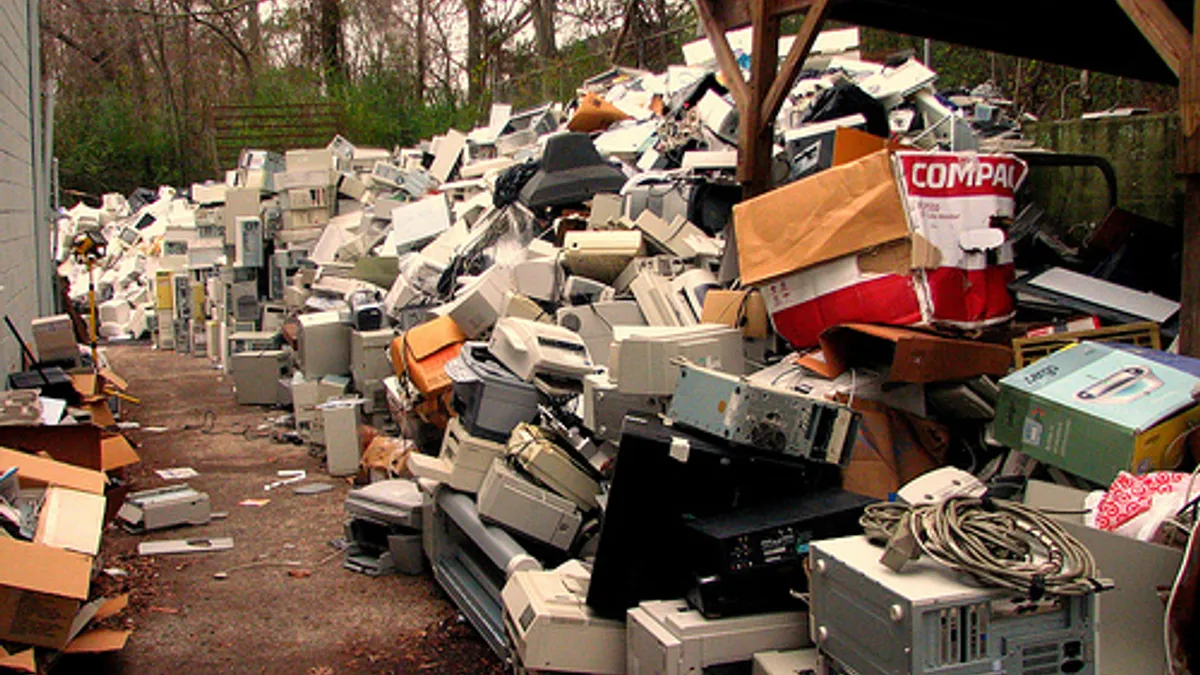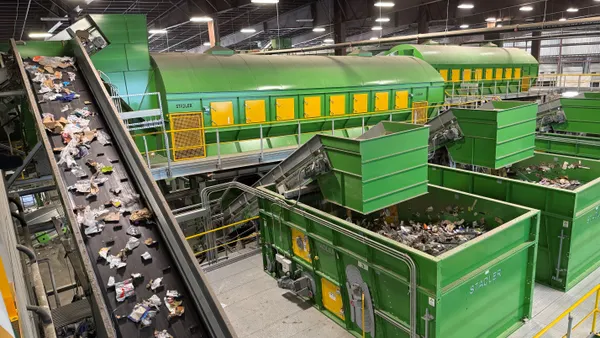Dive Brief:
- According to the Association of New Jersey Recyclers, local electronic waste recycling programs across the state are facing cancellation due to high costs.
- Adopted in 2010, New Jersey's state e-waste recycling law prohibited the disposal of televisions and computers into landfills. This shifted the recycling costs to owners and small businesses.
- Manufacturers have begun retracting funding of e-waste, and the expense has moved to government collection sites. Counties and municipalities are scrutinizing budgets and could shut the programs down.
Dive Insight:
Local governments face several factors that impact e-waste recycling costs, including the rising costs of labor, handling, education and events. In addition, recycling companies who previously paid for used electronics have now started charging for the service. Private e-waste processors say that manufacturers are reducing payments for e-waste and the end-markets are disappearing.
Another reason behind the reduced recycling rates are sluggish sales of TVs across the country. Manufacturers are also transporting e-waste out of state, where different standards exist. Also noted as an issue is the use of brokers as a middleman, who are driving the prices down—fees that would typically go directly to the recycler.
An additional factor causing problems for recyclers in general, not exclusively those handling e-waste, is China's notorious 'Green Fence,' which is costing municipalities in New Jersey up to $500,000 in lost revenues. This issue is impacting the entire nation, not to mention across the globe.













